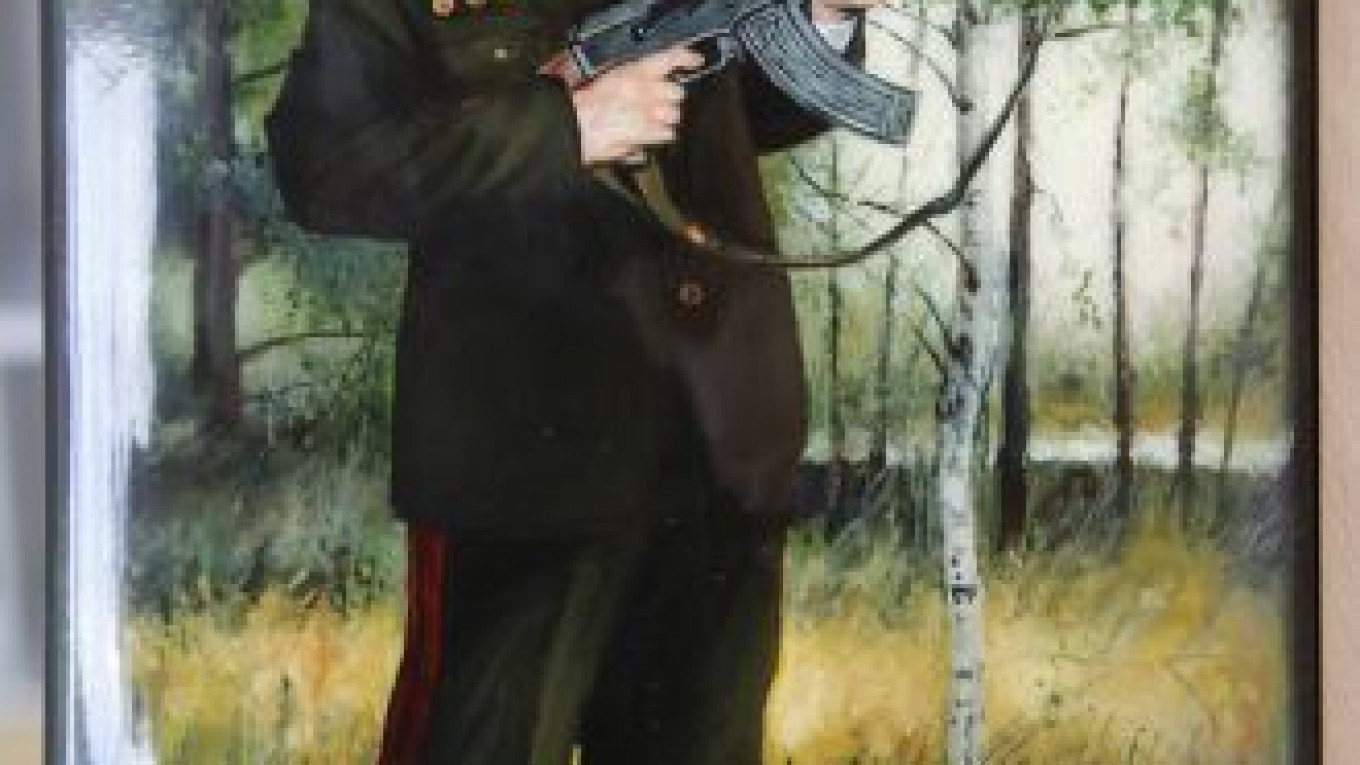The Defense Ministry said Tuesday that it has suspended purchases of the legendary Kalashnikov rifle and is expecting the manufacturer, Izhevsk machinery plant, to present it with a new model of the weapon.
Mobilization reserves of Kalashnikov assault rifles, which the Soviet armed forces began using in 1949, are too big, and the ministry is not satisfied with the quality of the current firearms arsenal, General Staff chief Nikolai Makarov said.
The current reserves of Kalashnikovs exceed needs by "dozens of times," and the armed forces "should first use the weapons that we have in reserves," said Makarov, who participated in a meeting of the armed forces' commanding officers with President Dmitry Medvedev.
"And we have a huge amount of them, so there's no need to purchase," said Makarov, who is also first deputy defense minister.
The new weapon, which is currently being developed, should be put in mobilization reserves and subsequently used to equip the army, he said.
The Defense Ministry is expecting Izhevsk machinery plant, or Izhmash, to present a chiefly new model of gun that could become an alternative to the Kalashnikov, a source in the ministry said Tuesday.
"When they develop and present a new gun, when it undergoes all the necessary tests and a decision is made to place it in service," purchases could be resumed, said the source, who spoke on condition of anonymity.
The ministry needs a weapon that will be "principally different in quality," the source said.
Izhmash spokesman Alexander Baditsa declined to comment on the suspension of state purchases, but he said the company is working on a new-generation gun model, which is expected to compete with the Kalashnikov.
The new gun will be based on "a principally new platform of small arms," he said by telephone from Izhevsk.
He declined to disclose other details of the project, saying the designers will provide them only by the end of this year.
"It's a priority goal for us," he said.
The quality of domestically produced small firearms is sufficiently high, but the Defense Ministry is not satisfied with some of their technical characteristics, said Igor Korotchenko, director of the Center for the Analysis of World Arms Trade.
"New purchases make no sense when there's a huge number of the same weapons lying in warehouses," he told The Moscow Times, adding, however, that among the main advantages of the Kalashnikov assault rifles are their simple design and ability to withstand external mechanical impact.
According to Korotchenko, suspending state purchases of the legendary assault rifle, which is one of the most popular gun brands in the world, will negatively affect Izhmash's financial performance, and the government should support the arms manufacturer as part of the federal special purpose program to develop the defense industry complex from 2011 to 2020.
However, the program, which ensures a total of 3 trillion rubles ($93.1 billion) in state support to defense industry companies, has not been passed by the State Duma yet, although Medvedev said in May that it should be passed in the near future.
In July, Medvedev urged the Defense Ministry to buy more weapons abroad as part of the government's plan to spend 20 trillion rubles to equip the armed forces with state-of-the-art weapons through 2020.
But while the government has already agreed to pay 1.2 billion euros ($1.63 billion) for two Mistral-class helicopter carriers from France, rejecting offers from domestic shipyards, Russia is unlikely to buy automatic small guns from abroad, because domestic manufacturers could offer high-quality weapons.
"The industry is showing that it's ready to meet the Defense Ministry's requirements and offer new products," Korotchenko said.
Izhmash is likely to focus on developing new types of automatic small guns that could be produced under the Kalashnikov brand name, as well as continuing to supply Kalashnikov guns for export, he said, adding that in recent years Russia has received big orders for Kalashnikov assault rifles from Venezuela, as well as Libya under its former leader Moammar Gadhafi.
Small automatic firearms, however, are just a tiny part of Russia's total arms exports, which are expected to reach $10.5 billion this year, Korotchenko said.
A Message from The Moscow Times:
Dear readers,
We are facing unprecedented challenges. Russia's Prosecutor General's Office has designated The Moscow Times as an "undesirable" organization, criminalizing our work and putting our staff at risk of prosecution. This follows our earlier unjust labeling as a "foreign agent."
These actions are direct attempts to silence independent journalism in Russia. The authorities claim our work "discredits the decisions of the Russian leadership." We see things differently: we strive to provide accurate, unbiased reporting on Russia.
We, the journalists of The Moscow Times, refuse to be silenced. But to continue our work, we need your help.
Your support, no matter how small, makes a world of difference. If you can, please support us monthly starting from just $2. It's quick to set up, and every contribution makes a significant impact.
By supporting The Moscow Times, you're defending open, independent journalism in the face of repression. Thank you for standing with us.
Remind me later.






